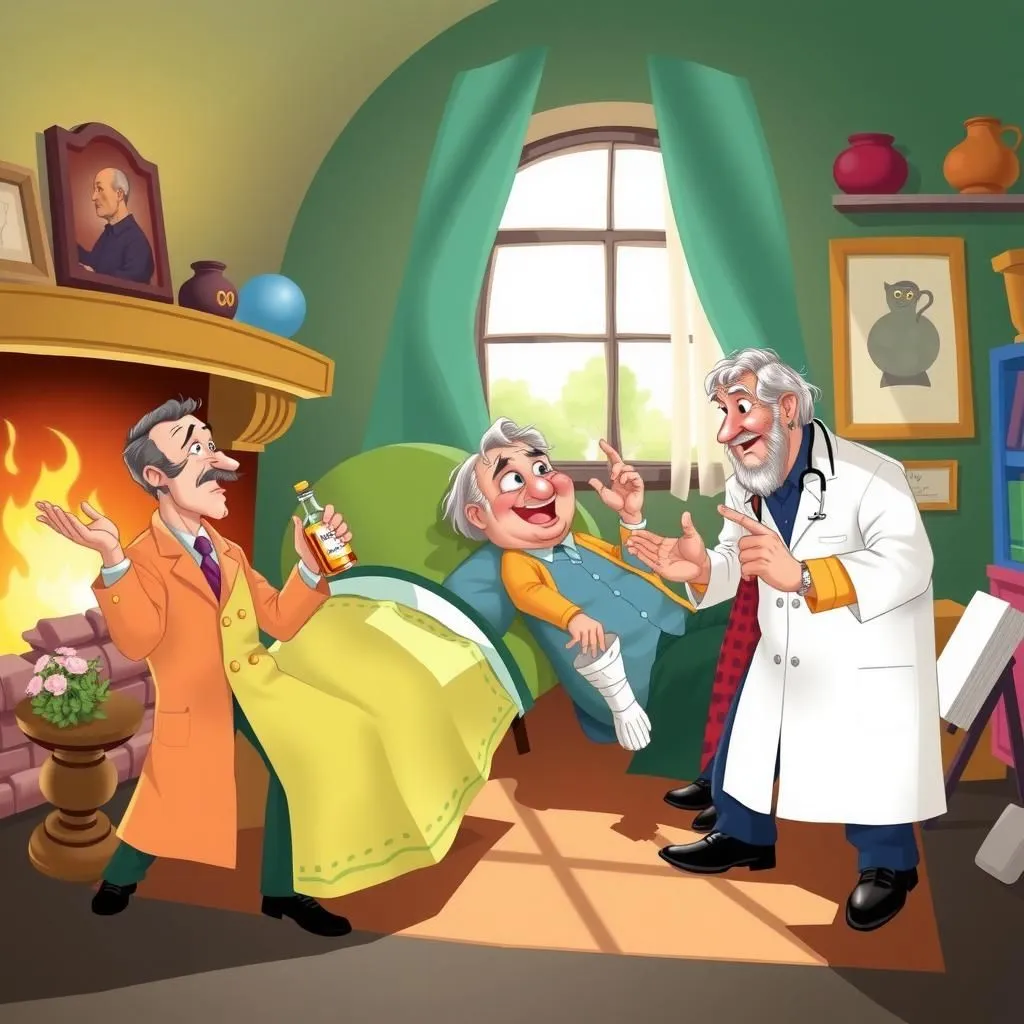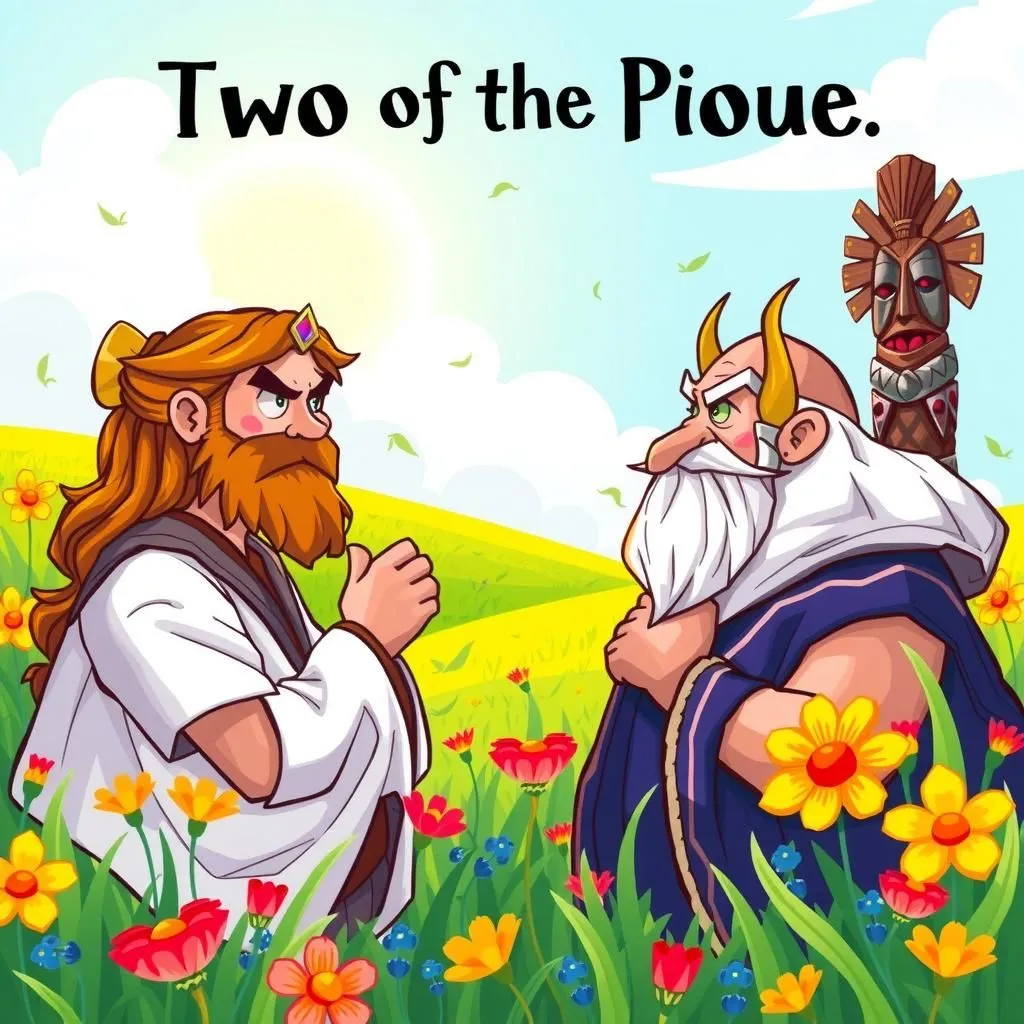
Physicians Two
In "Physicians Two," a wicked old man feigns illness to avoid taking medicine prescribed by two conflicting physicians, who treat him for weeks. When the doctors accidentally meet and argue over their differing remedies, the patient reveals he has been well for days, highlighting a humorous life lesson about honesty and the absurdity of trying to manipulate others. This quick moral story reminds us that deceit can lead to unnecessary complications and that honesty is often the best policy.


